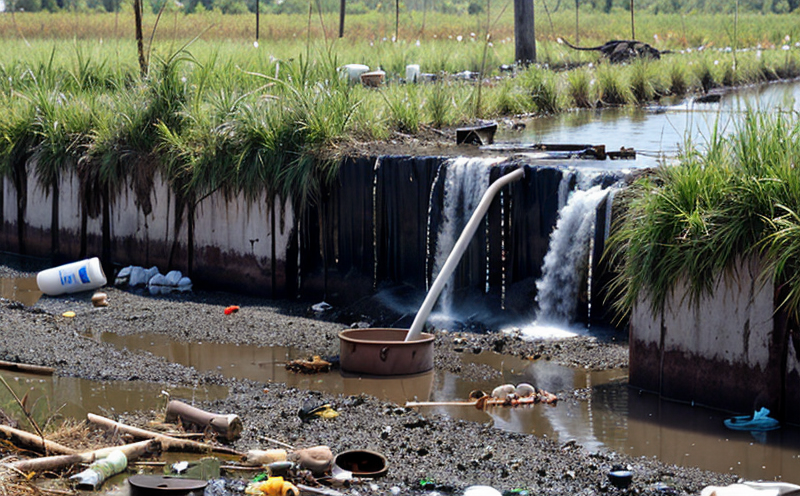Food Pollutant Testing
In today's complex and interconnected global supply chains, ensuring food safety and quality is paramount. Food pollutant testing plays a crucial role in safeguarding public health by identifying harmful substances that might contaminate the food we consume. This service ensures compliance with international standards such as ISO 17025 for laboratory competence.
Our team of experts specializes in detecting pollutants like heavy metals, pesticides, and mycotoxins in various food products. We use advanced instrumentation to analyze samples accurately and efficiently. The process begins with careful sample preparation, followed by rigorous testing using validated methods.
The demand for this service is driven by increasing consumer awareness about food safety and the stringent regulations imposed by global bodies such as WHO, FAO, and EU directives on pesticide residues in foods. Compliance with these standards not only ensures product safety but also enhances brand reputation and market access.
Our approach to food pollutant testing involves a multi-step process that starts with the collection of samples from different stages of production, processing, and distribution. Samples are then prepared using standardized procedures to ensure consistency and reliability. Our state-of-the-art laboratory uses cutting-edge technology to perform these analyses, providing clients with accurate results.
For instance, when testing for heavy metals in grains or fruits, we might use Inductively Coupled Plasma Mass Spectrometry (ICP-MS) techniques. Similarly, for pesticide residue tests on leafy greens, Liquid Chromatography-Tandem Mass Spectrometry (LC-MS/MS) is employed to achieve high precision and sensitivity.
The results of these analyses are reported comprehensively, highlighting any detectable pollutants along with their concentrations. These reports serve as critical documentation for regulatory bodies, internal quality assurance departments, and customers seeking assurances about the safety of the products they handle or consume.
- Heavy metals: Lead (Pb), Mercury (Hg), Cadmium (Cd)
- Pesticides: DDT, Glyphosate, Paraquat
- Mycotoxins: Aflatoxin B1, Ochratoxin A
Our services are tailored to meet the specific needs of various industries including agriculture, food processing, and pharmaceuticals. By adhering strictly to international standards like ISO 17025, we ensure that our clients receive reliable and actionable insights into their products.
In conclusion, food pollutant testing is an indispensable component in maintaining high standards of quality and safety across the entire supply chain. It helps stakeholders make informed decisions about product integrity and consumer health. Our commitment to excellence ensures that every test we conduct contributes significantly towards these objectives.
Industry Applications
The application of food pollutant testing spans multiple sectors where ensuring the safety and quality of food products is crucial. This service finds significant relevance in agriculture, food processing industries, pharmaceuticals, and even retail outlets.
Agriculture: Farmers can use this service to monitor pesticide levels in their crops before harvesting them for market sale. This helps prevent contamination that could lead to recalls or legal issues.
- Pre-harvest testing ensures compliance with regulatory limits set by organizations like the European Union and WHO.
- Post-harvest testing allows for timely intervention if any contamination is detected, reducing risks down the supply chain.
Food Processing: Manufacturers rely on this service to maintain strict control over their production processes. It aids in identifying potential sources of contamination early enough to implement corrective actions.
Pharma: Pharmaceutical companies need to ensure that raw materials and intermediate products do not contain harmful pollutants which could affect drug efficacy or safety.
Retail: Stores want to reassure customers about the quality of food items they sell. Testing supports this goal by providing verifiable evidence that all products meet strict hygiene standards.
Quality and Reliability Assurance
- Our laboratory adheres strictly to ISO/IEC 17025 for proficiency testing, ensuring consistent accuracy across our tests.
- We maintain traceability of all measurement processes back to national standards using NIST or BIPM certificates when available.
- Data reliability is guaranteed through regular calibration checks and validation studies conducted by independent third parties.
Our rigorous quality management system ensures that every aspect of our testing process meets international best practices. This commitment to excellence extends beyond mere compliance; it reflects our dedication to delivering dependable results that instill confidence in our clients.





